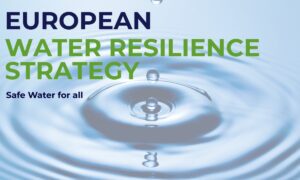The topic of chemical regulation played a crucial part of ENVI’s penultimate gathering of 2023, held on 29 November. The meeting began with the MEPs discussion on controversial agricultural chemicals fipronil and tricyclazole – including to an objection related to raising residue limits.
The following agenda item was the address of ECHA Director Sharon McGuinness, preceding the MEP’s questions. In her presentation, McGuinness summarised ECHA’s last year. She specifically mentioned the role of the Chemicals Strategy for Sustainability (CSS) – of which EuChemS is a stakeholder of. She addressed the relevance of The European Partnership for the Assessment of Risks from Chemicals (PARC) in CSS as well as the strategy’s role in the expansion of the agency’s mandate. This growth, she explained, also relates to increasing pressure on ECHA’s Risk Assessment and Socio-economic analysis groups. She carried on pointing out that this pressure justifies ECHA’s strategy of grouping chemicals for regulatory actions.
Such groupings are a key part of ECHA’s proposed PFAS regulation, which played an important role in the conversation with MEPs following McGuinness’s introduction. MEPs highlighted the topic’s many aspects, such as its relation to groundwater pollution or food contact materials. ENVI Chair MEP Pascal Canfin called the PFAS agenda the “most sensitive” and “most growing” one for the next term. Responding to these queries, McGuinness described the PFAS dossier as one with “huge ambition”, however, pointed out that, as ECHA’s committees are still processing data, she is unable to share details. While acknowledging the desire for speed, she told MEP-s that ECHA’s priority is ensuring that the science behind the opinion is sufficiently robust.
During the comprehensive dialogue, alongside PFAS, other topics related to chemical policy were also discussed, including, but not limited to ECHA’s budget, collaboration with the European Food Safety authority, and the safety of toys from hazardous materials. A recording of the meeting can be viewed here.



